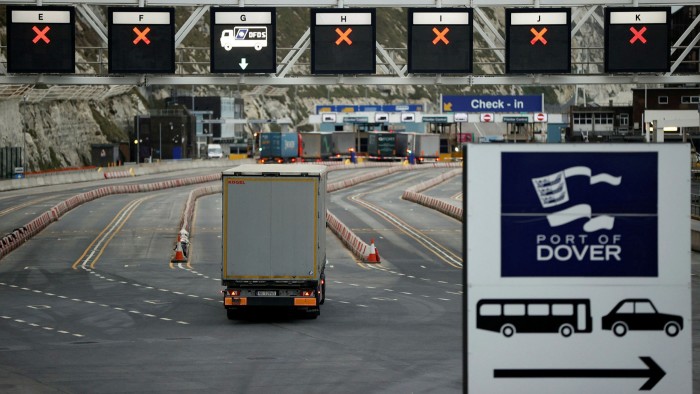Brexit bonus for the big consultants

Simply sign up to the Management consulting myFT Digest -- delivered directly to your inbox.
The UK’s largest consulting firms have been paid more than £306m over the past two years to advise the government on Brexit, according to published contract data.
At least 31 contracts have been agreed between government departments and consulting firms including PwC, Deloitte and McKinsey between September 2018 and February 2020 for work related to the UK’s departure from the EU, according to Tussell, a research company monitoring government contracts.
Examples of Brexit work included an attempt to set up a new system for customs declarations to manage the consequences for universities and the science sector. Millions of pounds more will have been spent on consultants for work where the EU is not directly cited but which addresses the knock-on effects of the UK’s departure, Tussell adds.
The amount spent on Brexit-related advice increased as the expiry of the transition agreement in December grew closer, with the Cabinet Office awarding a set of six £30m contracts to Deloitte, KPMG, Accenture, Bain & Co, McKinsey and PwC in August. The staff will be part of the Cabinet Office’s division handling the exit from the EU, and enables staff to be deployed to different departments.
The UK coalition government elected in 2010 had attempted to reduce spending on consultants, cutting back from nearly £2bn in 2009-10 to less than £500m by 2011-12. But the Tussell data shows consultants were again in demand as a result of the preparations for Britain to leave the EU.
The government spent £1bn on the eight big consultancies for all areas of work in the 12 months to August 2020, a 15 per cent increase on the previous year and the first time spending topped £1bn since Tussell began recording data in 2016. Not all contracting authorities examined by Tussell have published their expenditure in the period since August 2020, making later data less reliable, though contracts have been awarded.
Deloitte was the biggest earner, with a 49 per cent increase to £270m over the 12 months to August 2020, while KPMG and PA Consulting also saw significant rises, respectively billing the public sector 30 per cent and 28 per cent more than the previous year.

Although consultants also did well out of coronavirus spending, they were not the biggest recipients by value in that field, with providers of Covid-related products such as PPE, testing equipment and pharmaceuticals winning the largest portion of work
Ian Makgill, director of Spend Network, which researches procurement, says the suspension of rules in March so that contracts could be awarded quickly without competitive tender is “likely to have been good for consultants who were incumbent or embedded in departments as their work has “probably been extended or expanded”.
Although Brexit and Covid created an increased reliance on consultants, this work would increasingly be combined with more general strategic advice, he says.
“There’s a lot of data missing, but the proportion of projects just related to Brexit is starting to fade,” Makgill says. “The combination of disruption from Brexit and the pandemic has broadened people’s minds into looking at [wider] transformational issues,” he says.
There were three main areas of work, he adds. First, how to keep services functioning after Brexit, for example tackling immediate criminal justice implications; second, how to take advantage of the new regime, including the new procurement and state aid rules; and third, general policy changes, and to what extent they are altered after Brexit.
More from this report
The Cabinet Office said: “As a responsible government we have, and will continue to, draw on the expert advice of a range of specialists to prepare for the changes and opportunities that our new trading relationship brings. As a result of our significant preparations, all border systems were in place for the end of the transition period, avoiding disruption at UK ports.”
Meanwhile Ashok Patel, consultant at Source Global Research, an advisory firm for professional services, says businesses are ramping up Brexit-related work after being waylaid by the pandemic last year. Its survey of companies showed that “a small but notable portion of clients were still not clear about what they needed to do in response to Brexit, showing that there is plenty of scope for consultants to help identify and resolve Brexit-related issues”, he says.
Demand for operational expertise related to Brexit looks set to rise as clients seek to minimise friction at borders, while there will also be demand for connected risk and regulatory work, he says.
Comments